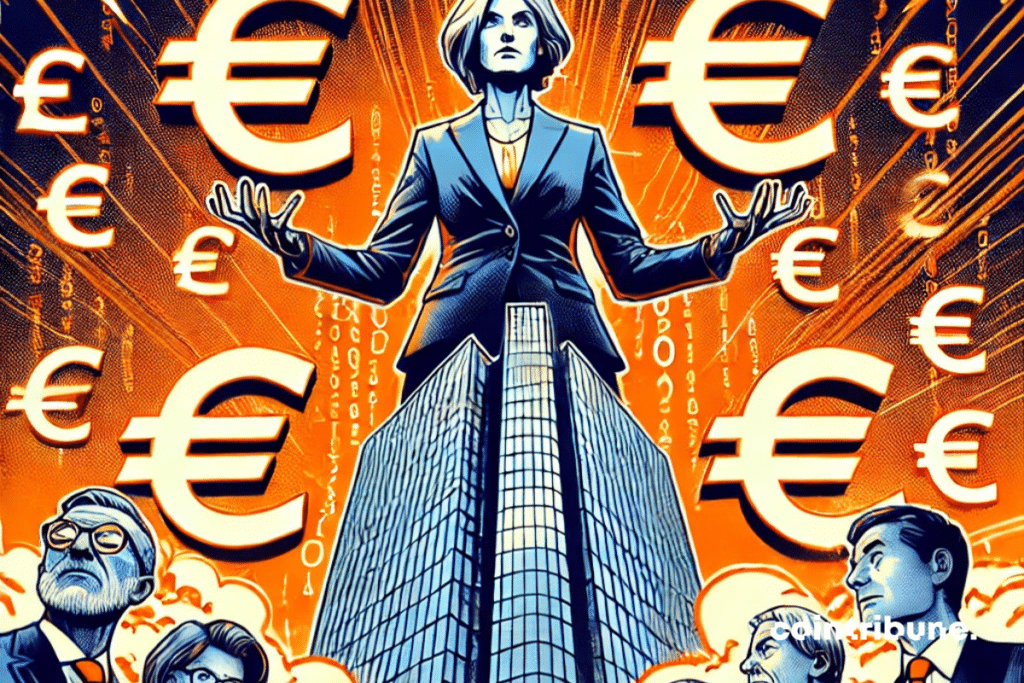The ECB Is Pushing For The Digital Euro, While States Are Concerned About Their Autonomy
The introduction of the digital euro provokes a major confrontation between the European Central Bank and the EU member states. At the heart of this battle: the control of a new monetary instrument that could disrupt the balance of financial power in Europe. Nine countries, including France and Germany, are already openly opposing Frankfurt’s ambitions.

A battle for control that divides Europe
The ECB has been developing a digital euro project for several years, aimed at competing with American payment giants like Visa and Mastercard. The institution based in Frankfurt wants to gain exclusive control over the amount of digital currency that citizens can hold in their electronic wallets.
This aspiration has caused concern in Brussels and European capitals, where there is fear of an excessive concentration of power in the hands of technocrats.
The stakes go far beyond the technical framework. Indeed, a high holding limit could, in the event of a crisis, trigger a massive flight of traditional bank deposits towards these new digital wallets. This prospect particularly worries governments, concerned about preserving the stability of their national banking systems.
Through this debate, a fundamental question arises: where to place the cursor between national sovereignty and European monetary integration?
Tense negotiations over a difficult compromise
The ECB defends its position by relying on its mandate as guardian of European monetary policy. The institution views the digital euro as a key element of the continent’s monetary sovereignty, particularly in light of the dominance of American payment systems that currently manage 70% of transactions in the EU.
However, a group of nine member countries, led by Germany, France, and the Netherlands, contests this vision. They claim their “political supremacy” over a project that, in their view, goes beyond the mere monetary framework to affect the organization of everyday financial services for European citizens.
An intermediate solution is emerging: lawmakers could set a general framework while leaving the final say to the ECB on technical details. But this proposal does not have unanimous support, as some states fear it is merely a smokescreen poorly disguising an excessive centralization of monetary power.
This crucial debate on the digital euro illustrates the persistent tensions between European integration and the preservation of national sovereignities. The outcome of this confrontation will shape the contours of the future European monetary architecture.
Maximize your Cointribune experience with our "Read to Earn" program! For every article you read, earn points and access exclusive rewards. Sign up now and start earning benefits.
Passionné par le Bitcoin, j'aime explorer les méandres de la blockchain et des cryptos et je partage mes découvertes avec la communauté. Mon rêve est de vivre dans un monde où la vie privée et la liberté financière sont garanties pour tous, et je crois fermement que Bitcoin est l'outil qui peut rendre cela possible.
The views, thoughts, and opinions expressed in this article belong solely to the author, and should not be taken as investment advice. Do your own research before taking any investment decisions.